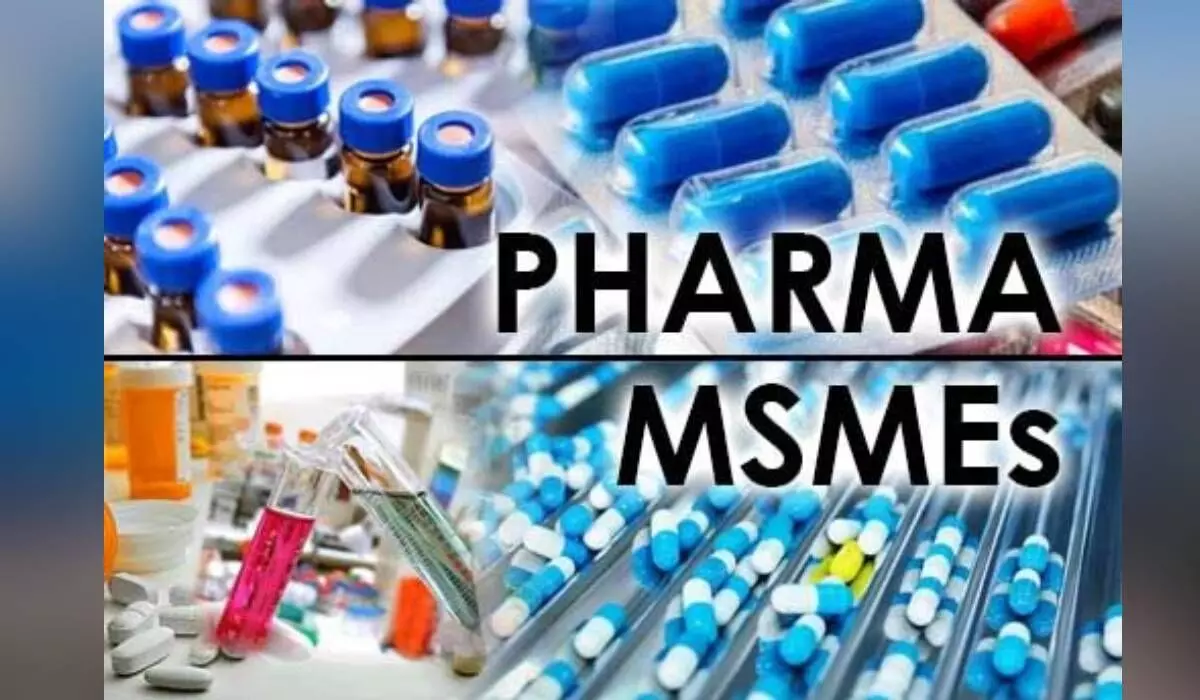TMR imposition will sound the death-knell for pharma MSME units
The Prime Minister has been cautioned that consumers will be forced to buy costly MNC products
image for illustrative purpose

In a move that will adversely affect thousands of pharmaceutical micro, small and medium enterprises (MSMEs), the Department of Pharmaceuticals (DoP) has renewed its efforts to implement the controversial Trade Margin Rationalisation (TMR) in the industry. But, the renewed efforts of the DoP to bring in TMR comes amidst stiff opposition from the RSS-affiliated small industries body LaghuUdyogBharati (LUB). As the issue is embroiled in controversy, the DoP has recently made a presentation to the Prime Minister’s Office (PMO) on the TMR issue and the concerns raised by LUB.
Earlier, the DoP and the national drug price regulator, the National Pharmaceutical Pricing Authority (NPPA), discussed the plans to impose TMR with the industry representatives in a meeting in the middle of May. While the industry as a whole has come to terms with the government’s move to introduce TMR, MSMEs have raised an alarm over the proposed move. They argue that if trade margins of MSMEs are capped on the basis of ex-factory price, then none of the channel partners of MSMEs will be left with any margin to promote the product and medicines from MSMEs will cease to become attractive. Not only will over 8000 pharma MSMEs close down but channel partners will go out of business too, resulting in several lakh people losing their livelihoods without any gain to the consumers.
It is true that frequent changes in pharma policies with restrictions and new guidelines being unveiled by the government after replacing the existing ones are putting disruptions on the operations of the MSME pharma units in the country. The MSME pharma units have cautioned the Union government that its proposal to introduce TMR on non-scheduled drugs could result in shutting down of many of small and medium pharma units. It has suggested that a practical way out would be to reduce the price of the lead brands and the MSMEs can fall in line by not crossing the price of the lead brand.
In a letter to Prime Minister Narendra Modi, MSMEs have stated that if trade margins are capped, they will have no choice but close down. In such a scenario, the consumers will gain nothing because they will be forced to buy MNC products on which capping will have no effect. Trade margin refers to the price difference between what the manufacturer sells to a wholesaler, who, in turn, sells to stockists and retailers, and the maximum retail price a consumer pays.
By changing the current trade margin structure that has been in force for many decades, the government wanted to make all the drugs affordable to the consumers, especially drugs for ailments like chronic kidney disease, some high end antibiotics, anti-virals (anti-infectives) and some cancer drugs. The government is keen to introduce trade margin capping on pharmaceutical industry to curb overcharging of medicines. With over 50,000 stockists and eight lakh retailers, the TMR issue is surely a complex one.
It should be implemented in a phased manner to avoid disruption in the market. The date for the commencement of TMR should be conveyed at least three months in advance. A proper amendment should be made in the DPCO-2013 to include TMR, which should be applied only to non-scheduled formulations and exclude medicines under Para 19 of DPCO-2013. For easy implementation, TMR should not be applicable to formulations with prices below Rs 100. TMR should exclude formulations for government institutional business. There are several aspects involved in the TMR issue. Therefore, the Centre should firm up a decision after taking into consideration the concerns expressed by all stakeholders.
It is clear that the central government is taking all these measures to rationalize trade margins on non-scheduled medicines to ensure access to quality healthcare at an affordable price. The pharmaceutical industry associations and the government agencies have come together to discuss the TMR issue at length to reach a consensus on the issue, which has been lingering for quite some time now. For the last couple of months, the DoP has convened several meetings to find an amicable solution to the issue, which will have a direct bearing on the more than Rs. 1,68,000 crore domestic pharmaceutical market as the present arrangement has been going on for decades together.
(The author is freelance
journalist with varied experience in different fields)

